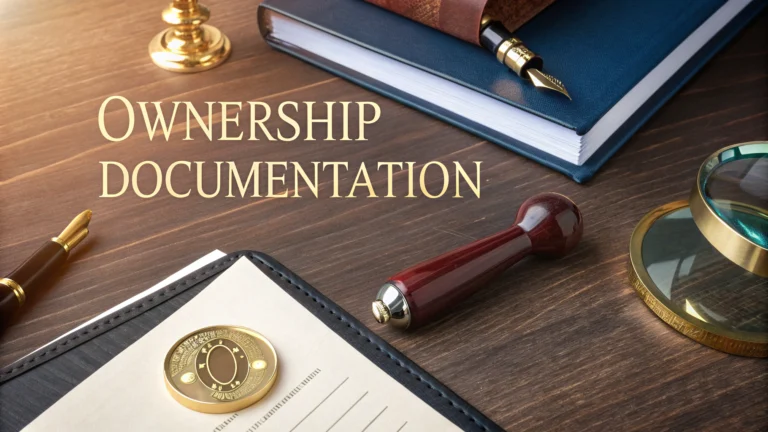Domain name ownership documentation protects your digital asset and establishes legal rights to your online property.
Types of Domain Ownership Documents
Registration certificates serve as primary proof of domain ownership for individuals and businesses.
Transfer records document the official change of domain name control between parties.
Purchase invoices and transaction receipts provide additional evidence of legitimate ownership.
Critical Documentation Requirements
Registrar verification records must include precise contact information and registration dates.
Legal entities should maintain corporate documentation linking the domain to their official business structure.
International domain registrations require specific regional documentation standards.
Recommended Documentation Practices
Store digital and physical copies of all domain ownership documents in secure, redundant locations.
Update contact information promptly to ensure continuous ownership verification.
Maintain a comprehensive file that includes:
- Original registration certificate
- Transfer agreements
- Payment confirmations
- Renewal records
Protection Strategies
Enable domain privacy protection to shield personal information from public WHOIS databases.
Use two-factor authentication for domain management accounts to prevent unauthorized transfers.
Consider registering similar domain variations to prevent potential brand confusion.
Legal Considerations
Consult intellectual property attorneys for complex domain ownership scenarios.
Document all communication related to domain transactions and ownership changes.
Understand specific legal requirements for different top-level domains (TLDs).
International Domain Ownership Considerations
Navigating international domain ownership requires a comprehensive understanding of diverse regulatory landscapes. Different countries implement unique legal frameworks that govern domain registration, transfer, and management. Businesses and individuals must research specific regional requirements to ensure compliance and protect their digital assets.
Cross-border domain ownership presents complex challenges related to intellectual property rights and jurisdictional variations. Some regions enforce stricter documentation standards, requiring additional verification processes for foreign registrants. Multinational organizations must develop robust strategies to manage domain portfolios across multiple legal territories.
Language barriers and cultural differences can significantly impact domain ownership documentation. Professional translation services and local legal consultations become critical for ensuring accurate interpretation of registration requirements. Organizations should invest in specialized expertise to navigate these intricate international domain management protocols.
Technology and Security Protocols
Advanced technological solutions now provide enhanced domain ownership verification and protection mechanisms. Blockchain technologies and distributed ledger systems are emerging as innovative approaches to establishing transparent and immutable domain ownership records. These technologies offer unprecedented security and authentication capabilities beyond traditional registration methods.
Cybersecurity considerations have become paramount in domain ownership documentation. Implementing multi-factor authentication, encrypted communication channels, and sophisticated access control measures can significantly mitigate potential risks of unauthorized domain transfers or hijacking attempts.
Digital Asset Management
Domain names increasingly represent valuable digital assets requiring strategic management and preservation. Comprehensive digital asset inventories should catalog domain portfolios, tracking registration dates, renewal schedules, and associated intellectual property rights. Systematic documentation enables organizations to optimize their digital real estate investments.
Future Trends in Domain Ownership
Emerging technologies and evolving internet governance models will continue to reshape domain ownership documentation practices. Artificial intelligence and machine learning algorithms are expected to streamline verification processes, making domain registration more efficient and secure.
Conclusion
Effective domain ownership documentation demands proactive management, technological awareness, and legal diligence. Organizations and individuals must remain adaptable, continuously updating their strategies to protect their digital assets in an increasingly complex online landscape.

